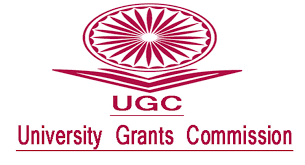SOURCE: INDIAN EXPRESS
Part-time degrees, no need to publish research: What new PhD regulations say
The Indian Express takes a closer look at the UGC (Minimum Standards and Procedures for Award of PhD Degree) Regulations, 2022 notified on November 7, which replace the Rules notified in 2016.
The University Grants Commission (UGC) has notified new regulations on PhD (Doctor of Philosophy) degrees, introducing a set of sweeping changes in eligibility criteria, admission procedure and evaluation methods governing doctoral programmes in college and universities.
The mandatory requirement of publishing research papers in refereed journals or presenting in conferences has been scrapped. Part-time PhDs have been launched for working professionals, and there is a relaxation of 5 per cent marks in eligibility for admissions even for the new EWS category.
The Indian Express takes a closer look at the UGC (Minimum Standards and Procedures for Award of PhD Degree) Regulations, 2022 notified on November 7, which replace the Rules notified in 2016.
How will the changes impact doctoral aspirants?
First and foremost, the eligibility criteria for admissions have been changed. Anyone with a four-year/eight-semester Bachelor’s programme degree with a minimum 75 per cent marks in aggregate or its equivalent grade will be eligible for a PhD.
Those joining PhD programmes after a four-year UG programme can do so after a one-year Master’s degree. Graduates with conventional three-year UG degrees need to have completed two-year Master’s degrees.
So far, a Master’s degree with at least 55 per cent marks in aggregate was mandatory for doctoral aspirants. Many universities also insisted on using M.Phil as the gateway. Those who had completed their M.Phil dissertation and were awaiting viva voce could also be admitted to PhD programmes.
First and foremost, the eligibility criteria for admissions have been changed. Anyone with a four-year/eight-semester Bachelor’s programme degree with a minimum 75 per cent marks in aggregate or its equivalent grade will be eligible for a PhD.
Those joining PhD programmes after a four-year UG programme can do so after a one-year Master’s degree. Graduates with conventional three-year UG degrees need to have completed two-year Master’s degrees.
So far, a Master’s degree with at least 55 per cent marks in aggregate was mandatory for doctoral aspirants. Many universities also insisted on using M.Phil as the gateway. Those who had completed their M.Phil dissertation and were awaiting viva voce could also be admitted to PhD programmes.

